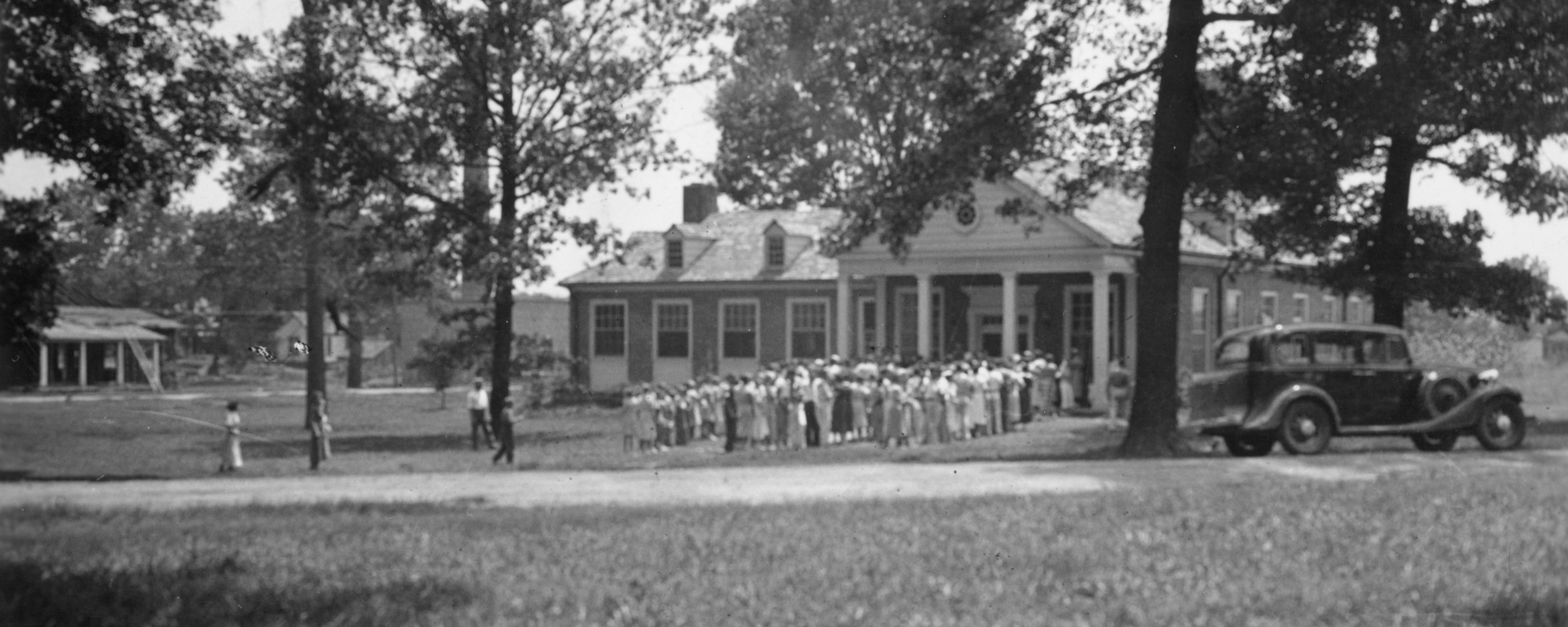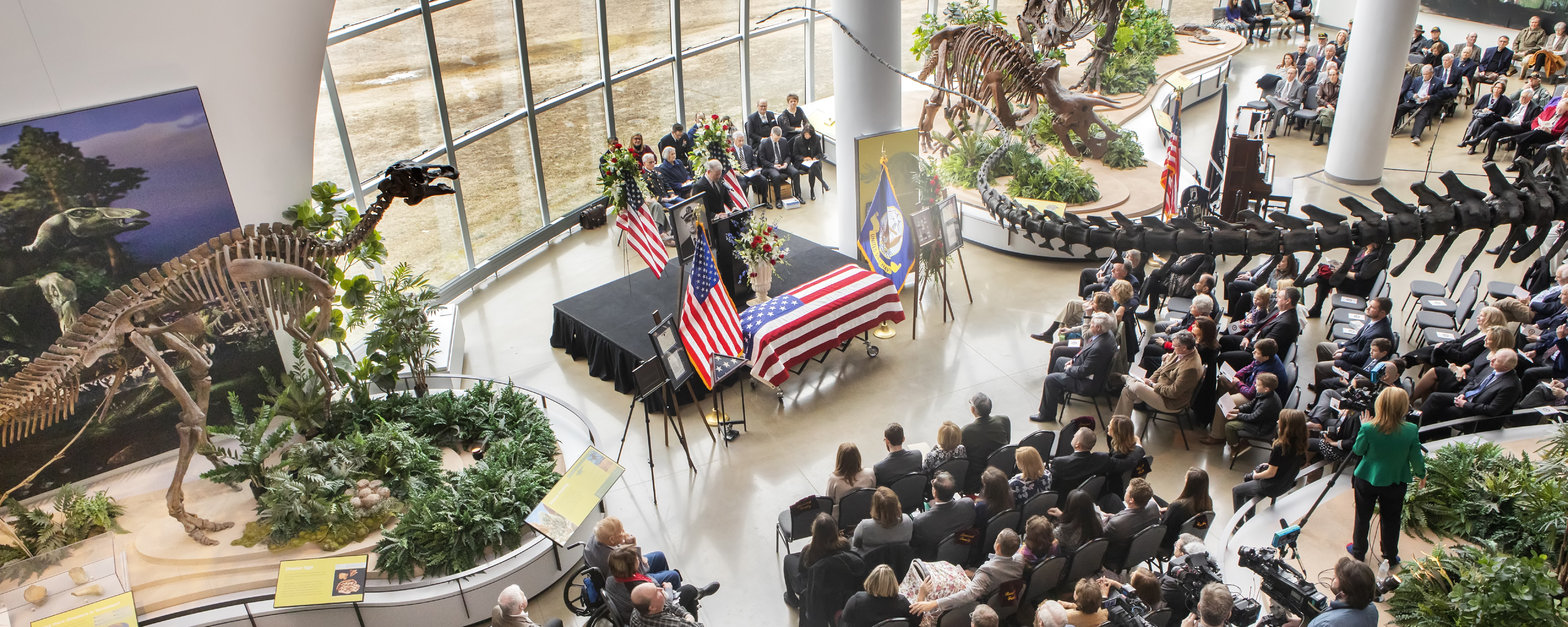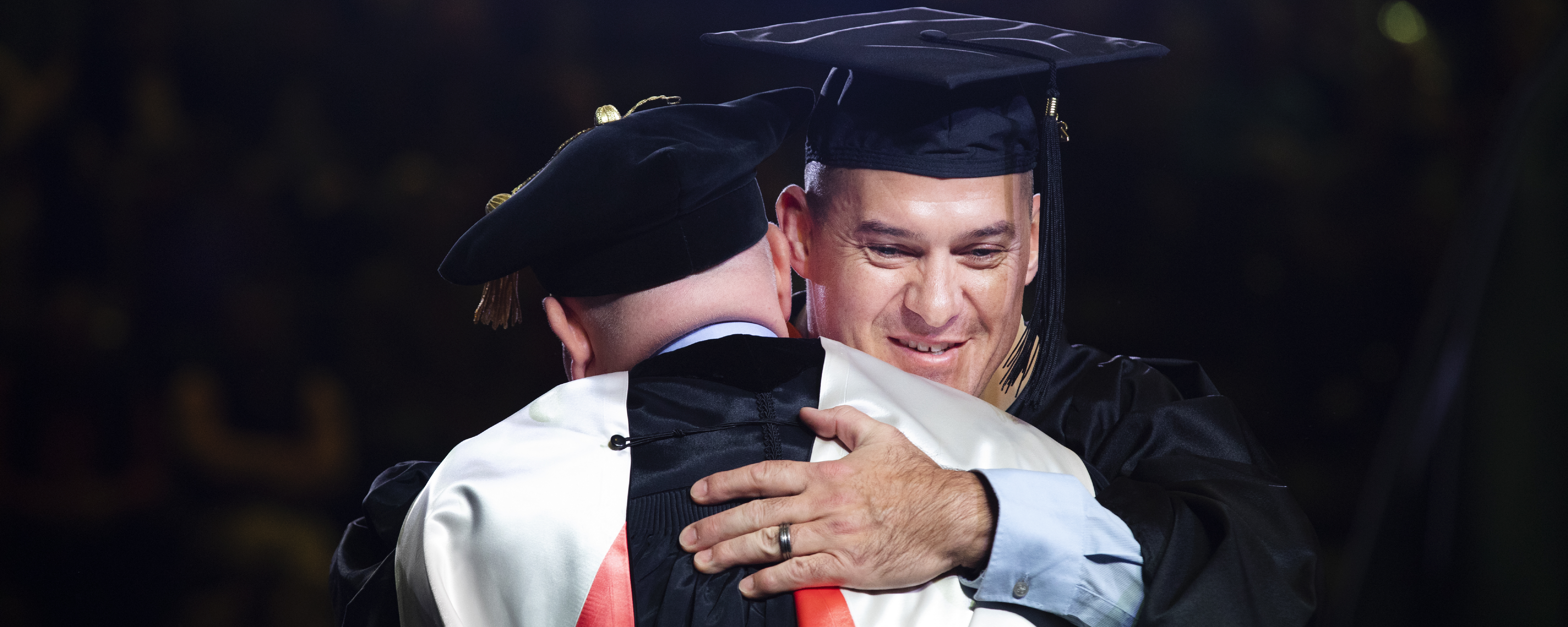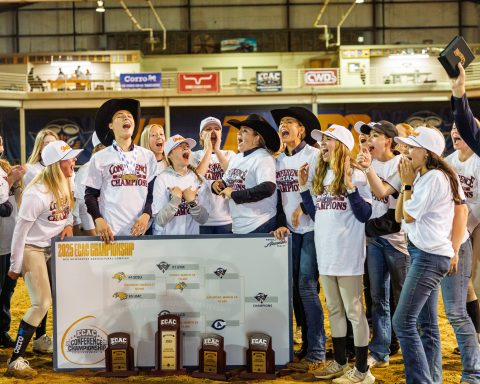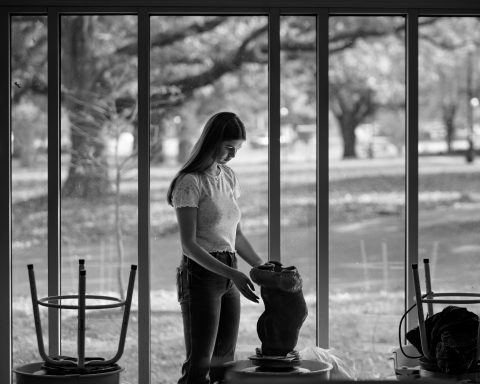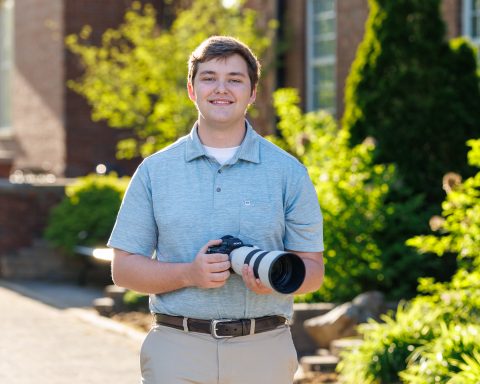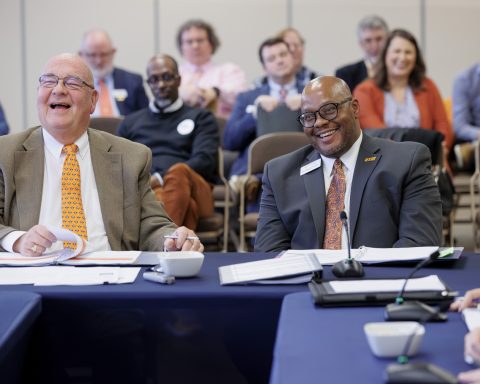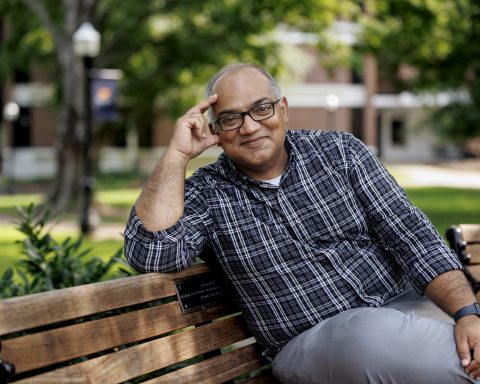Bringing Music to Life
Story by Erin Chesnut | Photos by Nathan Morgan
Chris McDonald (‘77) and Stephen Downing (‘18) have never met. And yet, they’ve walked the same halls and studied in the same classrooms; in some cases, they’ve even played the same instruments. While more than 40 years separate their graduation dates, both musicians found their style in the UT Martin Department of Music. And what different styles they are!
“I always tell people that my favorite instrument is whatever instrument is right in front of me,” said Downing (’18). “It really runs the gamut from traditional instruments like the marimba or the xylophone to things like flowerpots or brake drums from a car.”
Downing, a current student in Duke University’s doctoral program for composition, is often inspired by the sounds created by man-made objects such as dishwashers. He says this makes his music more accessible to listeners.

“I think that when I play a piece like the piece (I have) for flowerpots, it really helps the audience connect to me as a performer, because they see me on stage playing flowerpots and speaking as part of a piece, and they think, either consciously or subconsciously, ‘I could do that,’” he said. “I guess some performers might be turned off by that idea, but I want to break down this audience-performer divide. So instead of going onstage and playing a Stradivarius violin that costs millions of dollars, which probably none of the audience members could do, I like the accessibility we have, the relatability to the found objects.”
Downing has composed dozens of pieces, from one-minute segments to 20-minute performances, and has had his music performed all over the country. A percussionist by training, he specializes in non-traditional instrumental combinations and has played up to 30 instruments at a time during a single composition. However, he says many of his compositions are dictated by the instruments themselves.
“I kind of let the ensemble tell me what it wants,” he said. “I have a piece (that premiered in 2018) for this ensemble called Hypercube. … They have a saxophone, an electric guitar, piano and percussion. … So, with the saxophone and the electric guitar and the percussion, especially, they are instruments that want to be played loud and played fast and play tight rhythms just like it’s jazz or rock. So, I took that as a springboard and wrote the rest of the piece based on that.”

McDonald, who specializes in traditional big band and orchestral music, hears this voice as well. McDonald, a trombone player, says his experience playing in and composing for rock and roll, big band and jazz ensembles helps him anticipate the needs of every instrument in a piece.
“I think just from doing it so long, I know what every instrument is going to sound like in every register and how instruments are going to sound when they’re combined together,” he said. McDonald has made a career from composing and arranging music for commercials, popular records and movie soundtracks. Based in Nashville, he has worked with country music names such as Martina McBride, Willie Nelson and Reba McEntire as well as artists in other genres and around the world. His writing process is a bit different from Downing’s because he is often creating music to fit an artist’s already-recorded vocals.
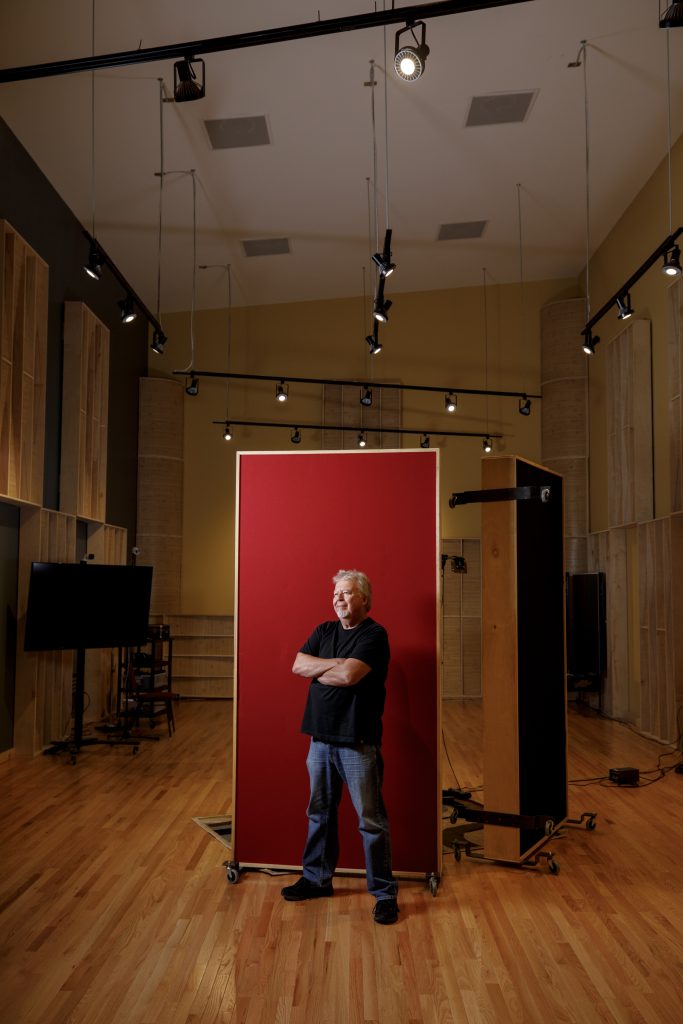
“In the old days, I would sit at the piano with a sheet of score paper. We didn’t even have Walkmans in the beginning. I had to play it on a cassette player, but now I get an MP3 emailed to me,” he explained. “I give an initial listen and get rhythms and tempos. This is just getting a structure of things like verses and chorus on a grid so I can easily locate sections. I might line out my physical score paper… I might just clear my head and get some sounds up, not even thinking. I just imagine that I’m listening to this band or this song.”
McDonald then uses sample clips to construct a rough estimate of what his additions to the track would sound like and, when those are approved by the producer, he drafts the entire score in digital music notation software and hires musicians to play on the live track. He says the best reaction he can get from an artist is tears.
“This has happened several times with country artists, but I like to make them cry. I’ve made Martina (McBride) cry, and I’ve made Sara Evans cry. It’s the best feeling,” he said.
Even though McDonald and Downing have very different composition styles, this hope to touch the hearts of audience members is one they both carry into every project.
“I hope (listeners) can hear a sound that kind of captivates them, not only on a personal level – something they can actually relate to and think ‘I have prior experience with this type of sound’ – but also on an intellectual level where something is going on underneath the surface of the music that might not be immediately audible, but once you hear it you can understand that things are unfolding,” said Downing.
While these two men are at very different places in their careers, they both give credit to UT Martin as the place where they developed and refined their talents. McDonald has an established name in the Nashville music industry and hundreds of album credits under his belt, but he says UT Martin was one of the first places where his music really saw the light of day.
“I was able to get anything I wrote played, which is the best way to learn,” he says, “They bent over backwards…. They scheduled my stuff on concert band programs. I wrote all the music for the Miss UT Martin pageant, which I got paid for. My work-study (position) my last year there was writing all of the marching band music. That’s just the best thing in the world to hear everything played.”

McDonald played in every existing university ensemble as well as several of his own. His first university band, called “Hangar,” became the first rock and roll band to play at the original Opryland park in Nashville during McDonald’s freshman year at UT Martin. He also played with a university ensemble called “Today’s People.” This group, since retired, played a variety of music both on campus and off – as far away as Canada, Iceland and Greenland during McDonald’s freshman year.
Now, he has composed music in a variety of genres, from salsa and Latin pop to soaring orchestral arrangements and gospel hymns. He has eight big band records under his name, recording as the Chris McDonald Orchestra and as Chris McDonald and Friends, and his current independent label, Constant Dreamer Records, has four records in distribution. He is always looking for new sounds and serves on The Recording Academy’s craft committee, which votes on arrangers and composers for GRAMMY awards.
“What I always consider, when I hear something, is ‘Is it something I haven’t heard before?’ People know how to do certain things in certain ways, and it can be done really, really well. But it’s like, ‘I’ve heard a lot of people do that. I can do that.’ I want you to wow me somehow, either harmonically or by taking a song and treating it in an entirely different way. I think keeping things fresh is the value of new music,” he says.
Downing, in his second year at Duke University, is certainly an example of fresh talent and new musical styles. He says one advantage of being a young composer today is the industry-wide desire to commission newer and more exciting music for each ensemble.

“I enjoy being a young composer because I kind of feel where the contemporary music scene is going and the different directions it can go,” he said. “When (my fellow doctoral candidates and I) play each other our music, we all enjoy each other’s work. … (My adviser) says that before our generation, it was not like that. It was very contentious between composers that wrote in different styles. I really enjoy being a young composer because most everyone is very open-minded and wants to experience different types of music.”
Downing ultimately hopes to teach composition at the university level and form an ensemble that will combine rock and roll with classical music in a way that makes the music more accessible to younger generations. His advice to the UT Martin musicians who come behind him is simple: don’t count yourself out.
“I’ve met far too many people who just think of themselves as performers, and we talk about composition, and they say, ‘I always wish I could compose.’ And I always say, ‘Well, why don’t you?’” he said. “A lot of times they say, ‘Well, I don’t know how, and I tell them if they figure it out, please let me know, because I don’t know how either.”
Listen to McDonald talk about his record, “A Big Swinging Christmas”:




